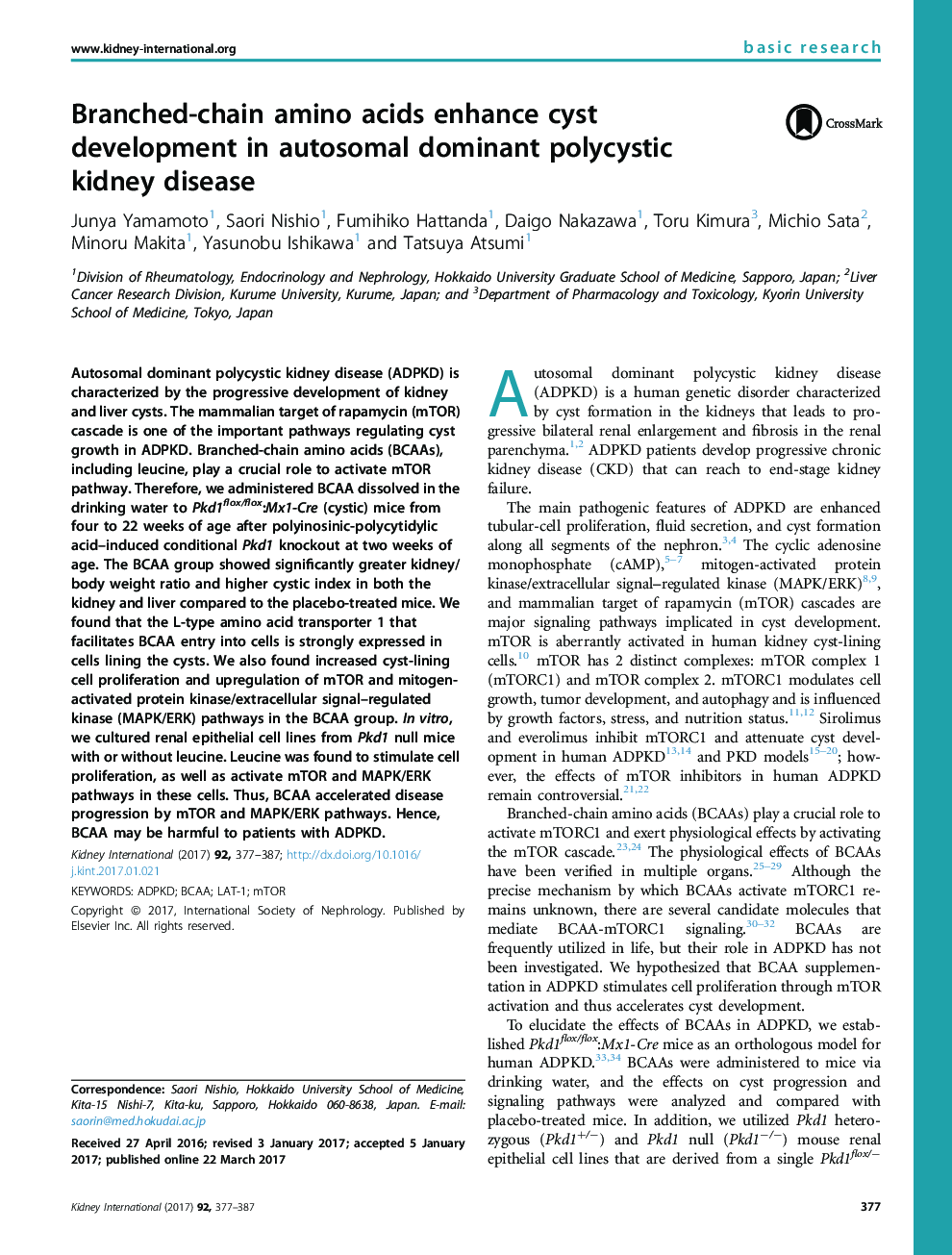| کد مقاله | کد نشریه | سال انتشار | مقاله انگلیسی | نسخه تمام متن |
|---|---|---|---|---|
| 5688249 | 1409896 | 2017 | 11 صفحه PDF | دانلود رایگان |
عنوان انگلیسی مقاله ISI
Branched-chain amino acids enhance cyst development in autosomal dominant polycystic kidney disease
ترجمه فارسی عنوان
آمینو اسیدهای زنجیره ای شاخه ای، پیشرفت کیست را در بیماری کلیوی پلی کیستیک غالب در اتوزوم مغلوب می کند
دانلود مقاله + سفارش ترجمه
دانلود مقاله ISI انگلیسی
رایگان برای ایرانیان
کلمات کلیدی
موضوعات مرتبط
علوم پزشکی و سلامت
پزشکی و دندانپزشکی
بیماریهای کلیوی
چکیده انگلیسی
Autosomal dominant polycystic kidney disease (ADPKD) is characterized by the progressive development of kidney and liver cysts. The mammalian target of rapamycin (mTOR) cascade is one of the important pathways regulating cyst growth in ADPKD. Branched-chain amino acids (BCAAs), including leucine, play a crucial role to activate mTOR pathway. Therefore, we administered BCAA dissolved in the drinking water to Pkd1flox/flox:Mx1-Cre (cystic) mice from four to 22 weeks of age after polyinosinic-polycytidylic acid-induced conditional Pkd1 knockout at two weeks of age. The BCAA group showed significantly greater kidney/body weight ratio and higher cystic index in both the kidney and liver compared to the placebo-treated mice. We found that the L-type amino acid transporter 1 that facilitates BCAA entry into cells is strongly expressed in cells lining the cysts. We also found increased cyst-lining cell proliferation and upregulation of mTOR and mitogen-activated protein kinase/extracellular signal-regulated kinase (MAPK/ERK) pathways in the BCAA group. In vitro, we cultured renal epithelial cell lines from Pkd1 null mice with or without leucine. Leucine was found to stimulate cell proliferation, as well as activate mTOR and MAPK/ERK pathways in these cells. Thus, BCAA accelerated disease progression by mTOR and MAPK/ERK pathways. Hence, BCAA may be harmful to patients with ADPKD.
ناشر
Database: Elsevier - ScienceDirect (ساینس دایرکت)
Journal: Kidney International - Volume 92, Issue 2, August 2017, Pages 377-387
Journal: Kidney International - Volume 92, Issue 2, August 2017, Pages 377-387
نویسندگان
Junya Yamamoto, Saori Nishio, Fumihiko Hattanda, Daigo Nakazawa, Toru Kimura, Michio Sata, Minoru Makita, Yasunobu Ishikawa, Tatsuya Atsumi,
